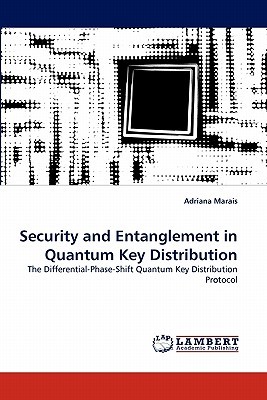
- We will send in 10–14 business days.
- Author: Adriana Marais
- Publisher: LAP Lambert Academic Publishing
- ISBN-10: 3843361029
- ISBN-13: 9783843361026
- Format: 15.2 x 22.9 x 0.7 cm, minkšti viršeliai
- Language: English
- SAVE -10% with code: EXTRA
Security and Entanglement in Quantum Key Distribution (e-book) (used book) | bookbook.eu
Reviews
Description
Quantum key distribution (QKD) is a means of distributing a secure key between two parties, who wish to communicate privately. The security of the resulting shared key is independent of a potential eavesdropper's computational and technological power, if used as a one-time pad. The differential-phase-shift (DPS) QKD protocol has a number of practical advantages: its suitability for fibre transmissions; use of readily available telecommunication tools; no requirement for a single photon source (the generated states are assumed to be easily produced coherent states) and thus high communication efficiency. However, bounds for the unconditional security of DPS QKD have not yet been found. Here the security of the DPS QKD protocol is investigated, and a necessary condition for security is shown to be fulfilled.
EXTRA 10 % discount with code: EXTRA
The promotion ends in 23d.05:35:47
The discount code is valid when purchasing from 10 €. Discounts do not stack.
- Author: Adriana Marais
- Publisher: LAP Lambert Academic Publishing
- ISBN-10: 3843361029
- ISBN-13: 9783843361026
- Format: 15.2 x 22.9 x 0.7 cm, minkšti viršeliai
- Language: English English
Quantum key distribution (QKD) is a means of distributing a secure key between two parties, who wish to communicate privately. The security of the resulting shared key is independent of a potential eavesdropper's computational and technological power, if used as a one-time pad. The differential-phase-shift (DPS) QKD protocol has a number of practical advantages: its suitability for fibre transmissions; use of readily available telecommunication tools; no requirement for a single photon source (the generated states are assumed to be easily produced coherent states) and thus high communication efficiency. However, bounds for the unconditional security of DPS QKD have not yet been found. Here the security of the DPS QKD protocol is investigated, and a necessary condition for security is shown to be fulfilled.


Reviews